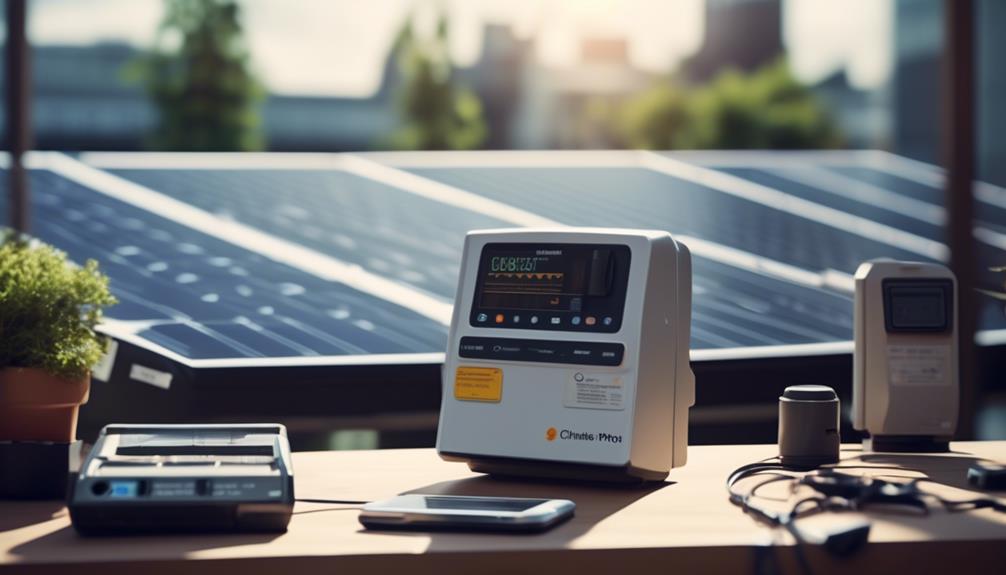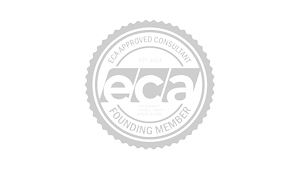Navigating the renewable energy landscape can be a daunting endeavour, especially when aiming to align energy procurement strategies with ambitious sustainability goals. Many find themselves sifting through an overwhelming array of options, each with its own set of complexities and implications. This quest for an optimal solution not only underscores the need for a tailored approach but also beckons for guidance steeped in expertise and understanding.
Herein lies the essence of bespoke renewable energy sourcing – a method meticulously designed to cater to the unique energy aspirations and challenges of organisations, marking a departure from the conventional, one-size-fits-all solutions.
With a deep-rooted comprehension of the intricacies involved in renewable energy sourcing, this discourse aims to illuminate the path to achieving sustainability goals through customised energy strategies. It recognises the diverse needs of each organisation, offering insights into how bespoke solutions can mitigate risks, enhance affordability, and elevate sustainability efforts.
As we delve deeper into the distinctive advantages of bespoke renewable energy sourcing, readers will find themselves equipped with the knowledge to navigate their energy journey with confidence, poised to make informed decisions that resonate with their specific objectives and values. Let’s embark on this exploration, unraveling the nuances that make bespoke sourcing not just an option, but a strategic imperative for those committed to a sustainable future.
Key Takeaways
- Customised renewable energy solutions offer a diverse range of instruments and strategies to help organisations achieve their sustainability goals.
- Tailored sourcing strategies focus on setting ambitious yet realistic sustainability goals and utilise a mix of renewable energy instruments to increase impact and cost savings over time.
- The unique energy procurement approach combines renewable energy instruments and market insights to reduce risk, increase affordability, and enhance sustainability ambitions.
- Differentiated renewable energy sourcing emphasises setting challenging yet attainable sustainability goals and enables organisations to access renewable energy and make significant strides towards decarbonisation.
Customised Renewable Energy Solutions
Customised renewable energy solutions offer a diverse range of instruments and strategies to help businesses achieve ambitious sustainability goals while reducing risk, enhancing affordability, and maximising environmental and social benefits. These tailor-made renewable solutions enable organisations to set and achieve targets such as Science Based Targets (SBT) or committing to 100% Renewable Energy (RE100).
To achieve these goals, customised renewable energy solutions provide a mix of renewable energy instruments, including green tariffs, Energy Attribute Certificates (EACs), power purchase agreements (PPAs), and on-site renewable energy. By combining these different options, businesses can enhance their impact, hedge prices, and achieve cost savings over time.
In addition to carbon emissions reduction, these solutions offer a range of environmental and social benefits. The use of renewable energy helps to reduce dependency on fossil fuels, decrease air and water pollution, and conserve natural resources. Furthermore, it contributes to the local economy by creating jobs in the renewable energy sector.
Customised renewable energy solutions also offer workshops to empower organisations in their strategic decision-making process. These workshops provide insights into the latest trends, technologies, and best practices in renewable energy procurement. This enables businesses to maximise the benefits of renewable energy solutions and make informed choices that align with their sustainability objectives.
Tailored Sourcing Strategies
Tailored sourcing strategies leverage a mix of renewable energy instruments and personalised account management solutions to drive customised sustainability goals and optimise energy expenditure. These strategies go beyond simply procuring renewable energy and instead focus on innovative energy procurement methods that align with an organisation’s unique sustainability objectives.
Here are three key components of tailored sourcing strategies:
- Ambitious yet realistic sustainability goals: Tailored sourcing strategies involve setting customised sustainability goals, such as Science Based Targets (SBT) and the commitment to achieving 100% Renewable Energy (RE100). These goals ensure that the organisation is actively contributing to the transition to a low-carbon economy.
- Diverse renewable energy instruments: A mix of renewable energy instruments is implemented to increase impact and cost savings over time. This includes green tariffs, Energy Attribute Certificates (EACs), and power purchase agreements (PPAs). By carefully selecting and implementing the most suitable renewable energy instruments, organisations can effectively achieve their sustainability targets and operationalise their strategy.
- Personalised account management solutions: Tailored sourcing strategies offer personalised and reactive energy account management solutions. Organisations receive bespoke budgeting solutions that optimise energy expenditure and ensure that their sustainability goals are met efficiently. This level of personalised management helps reduce risk, increase affordability, and provides environmental and social benefits in addition to carbon emissions reduction.
Unique Energy Procurement Approach
With a focus on optimising energy procurement and achieving sustainability goals, the unique energy procurement approach utilises a strategic combination of renewable energy instruments and market insights. This approach helps organisations reduce risk and insulate against market volatility while increasing affordability, reducing power procurement costs, and enhancing sustainability ambitions and Corporate Social Responsibility efforts.
To operationalise the strategy, bespoke renewable energy sourcing employs various energy procurement techniques, such as green tariffs, Energy Attribute Certificates (EACs), and power purchase agreements (PPAs). These instruments offer organisations flexibility and choice in sourcing renewable energy, enabling them to align their energy consumption with their sustainability goals.
A key component of the unique energy procurement approach is gaining knowledge and insights into renewable energy procurement options, risks, and benefits. Workshops are conducted to empower decision-making by providing a deep understanding of renewable energy market dynamics, regulatory frameworks, and emerging trends. This knowledge equips organisations with the ability to navigate the complex landscape of renewable energy sourcing and make informed decisions that align with their specific needs and goals.
The table below highlights the renewable energy instruments commonly used in the unique energy procurement approach:
| Renewable Energy Instrument | Description |
|---|---|
| Green Tariffs | Renewable energy purchasing programs offered by utilities or energy suppliers at a fixed rate. |
| Energy Attribute Certificates (EACs) | Tradable certificates that represent the environmental attributes of renewable energy generation. |
| Power Purchase Agreements (PPAs) | Long-term contracts between a renewable energy developer and an organisation to purchase electricity at a predetermined price. |
Differentiated Renewable Energy Sourcing
To further advance the optimisation of energy procurement and achieve ambitious sustainability goals, the discussion now turns to the subtopic of Differentiated Renewable Energy Sourcing. This approach stands out for its emphasis on customised energy contracts and individualised sustainability goals. Here are three key aspects of Differentiated Renewable Energy Sourcing:
- Ambitious yet Realistic Goals: Differentiated Renewable Energy Sourcing emphasises setting sustainability goals that are both challenging and attainable. This includes targets such as Science Based Targets (SBT) and the commitment to source 100% renewable energy (RE100). By setting these goals, organisations can make significant strides towards decarbonisation and demonstrate their commitment to a sustainable future.
- Diverse Renewable Energy Instruments: To achieve these goals, Differentiated Renewable Energy Sourcing utilises a mix of renewable energy instruments. This includes green tariffs, which allow companies to access renewable energy directly from the grid; Energy Attribute Certificates (EACs), which enable the purchase of renewable energy credits; and power purchase agreements (PPAs), which involve long-term contracts for the purchase of renewable energy directly from a generator. By utilising this strategic blend, organisations can optimise their renewable energy procurement and ensure a diversified and reliable supply.
- Benefits and Advantages: Differentiated Renewable Energy Sourcing offers a range of benefits. It helps reduce risk and insulate against market volatility by diversifying energy sources. It can also increase affordability and reduce power procurement costs over the long term. Moreover, it enhances sustainability ambitions and Corporate Social Responsibility efforts, enabling organisations to showcase their commitment to environmental stewardship and attract socially conscious customers and investors.
Personalised Renewable Energy Solutions
Personalised Renewable Energy Solutions leverage a strategic blend of renewable energy instruments and ambitious sustainability goals to drive significant impact and achieve long-term cost savings. These solutions involve setting individualised sustainability goals, such as Science Based Targets (SBT) or aiming for 100% Renewable Energy (RE100). To increase their impact and achieve cost savings over time, a mix of renewable energy instruments is utilised. These include green tariffs, Energy Attribute Certificates (EACs), and power purchase agreements (PPAs).
By adopting personalised energy procurement strategies, businesses can reduce risk and insulate themselves against market volatility while also increasing affordability and enhancing their sustainability ambitions. Expert advisory services and tailored workshops are provided to empower strategic decision-making and maximise the benefits of renewable energy solutions. These solutions are offered by experienced experts with global and localised knowledge of power markets, enabling businesses to reduce emissions and navigate renewable energy purchasing options more effectively.
To illustrate the benefits of personalised renewable energy solutions, the following table highlights their advantages over traditional energy procurement methods:
| Traditional Energy Procurement | Personalised Renewable Energy Solutions |
|---|---|
| Limited environmental impact | Drives significant sustainability impact |
| Higher exposure to market price volatility | Provides cost savings over the long term |
| Less control over energy sources | Allows for customisation and choice of renewable energy instruments |
| Minimal contribution to sustainability goals | Helps achieve individualised sustainability targets |
Bespoke Approach to Sourcing Energy
By adopting a bespoke approach to sourcing energy, businesses can strategically align their sustainability goals with a tailored blend of renewable energy instruments, optimising cost savings and achieving significant sustainability impact. This approach involves the following:
- Customised energy solutions: A bespoke approach enables businesses to select energy solutions that are specifically tailored to their unique needs and objectives. This may include a combination of green tariffs, Energy Attribute Certificates (EACs), and power purchase agreements (PPAs). By customising their energy mix, businesses can maximise the use of renewable sources and minimise reliance on fossil fuels.
- Individualised sourcing strategies: Bespoke renewable energy sourcing requires organisations to define a clear vision and strategy for achieving their sustainability goals. This involves setting ambitious yet realistic targets, such as Science Based Targets (SBT) and 100% Renewable Energy (RE100). By developing individualised sourcing strategies, businesses can ensure that their energy procurement aligns with their overall sustainability objectives.
- Enhanced cost savings: The customised approach to sourcing energy not only helps businesses achieve their sustainability goals but also offers significant cost savings. By leveraging renewable energy instruments effectively, organisations can reduce risk, insulate against market volatility, and optimise power procurement costs. This not only enhances their bottom line but also strengthens their commitment to Corporate Social Responsibility efforts.


















